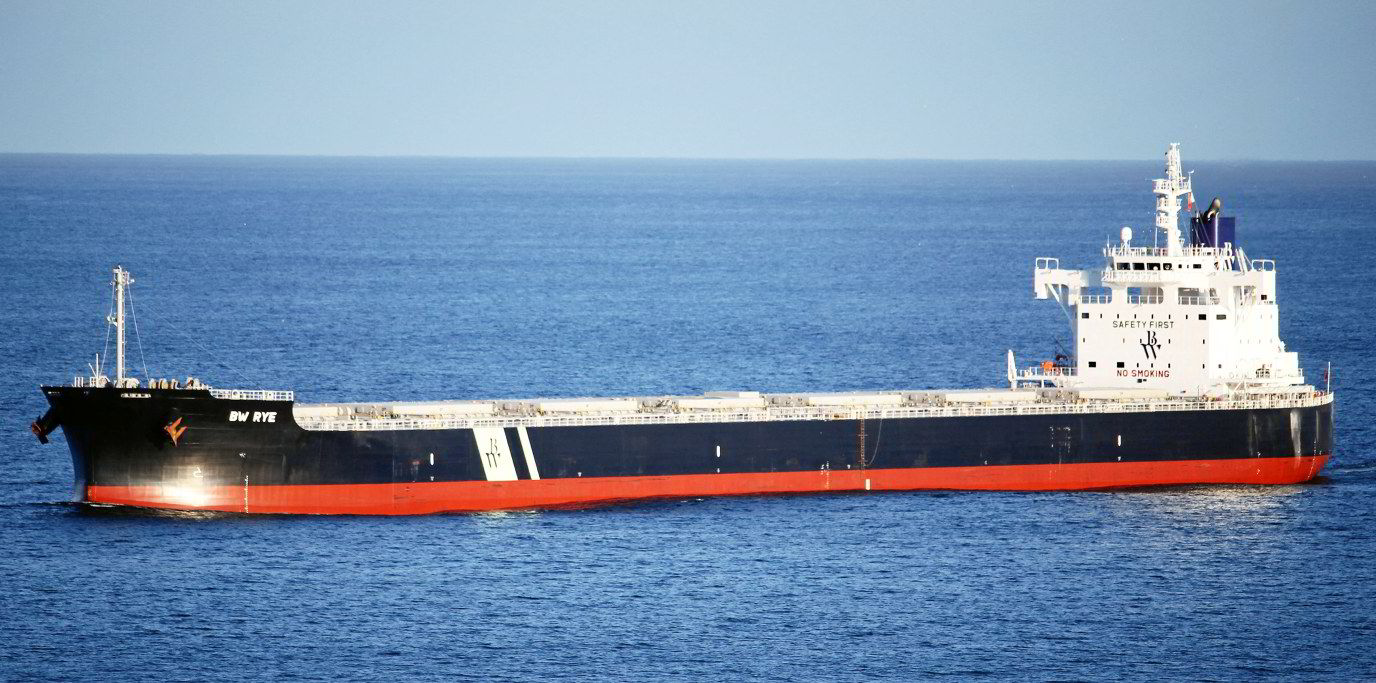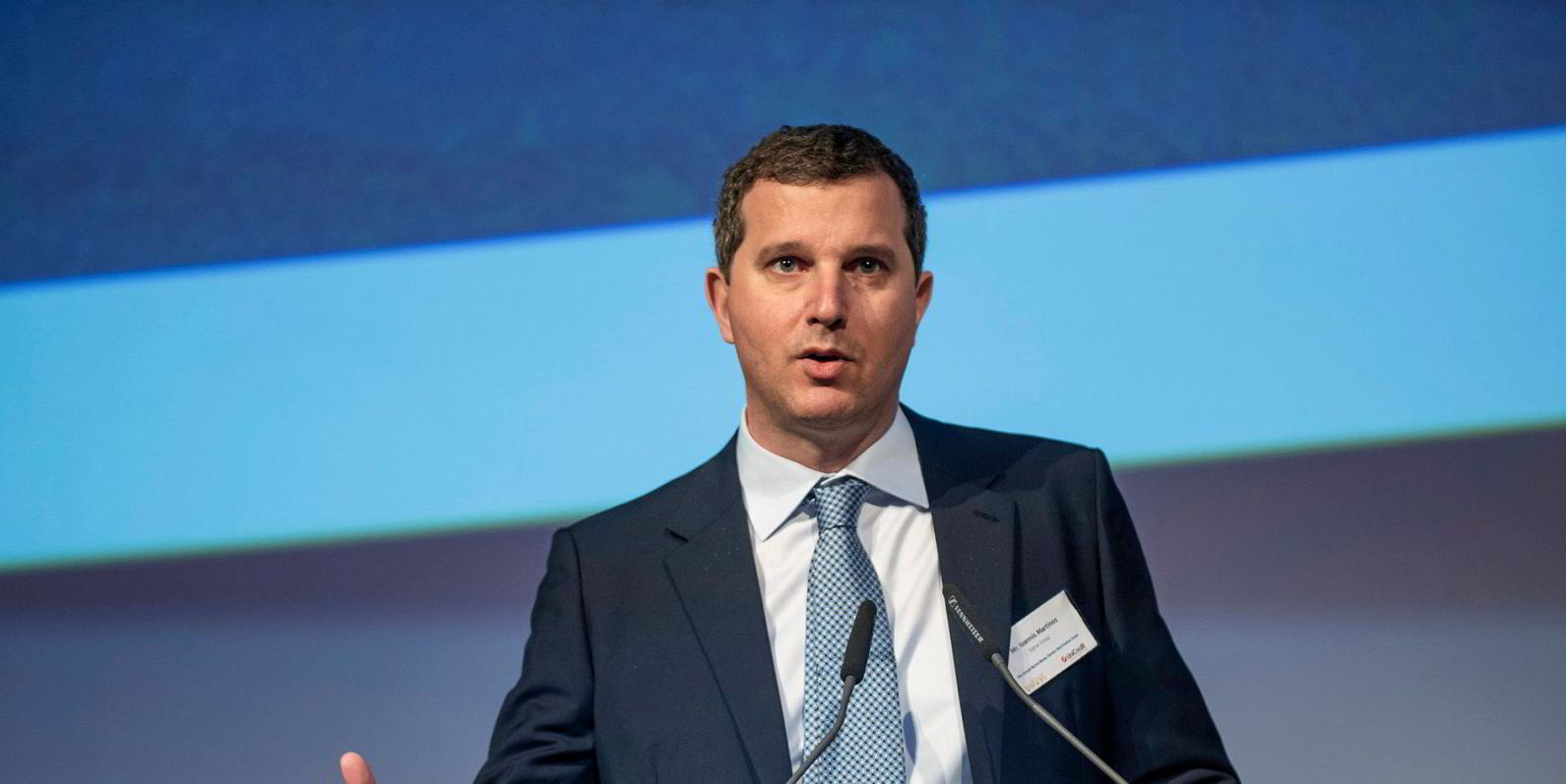A BW Group-backed joint venture has launched a vessel performance-monitoring platform that aims to incentivise shipowners to improve efficiency and help them benefit from outperforming contractual warranties.
The Singapore-based group even thinks the Miros Mocean platform could help revolutionise shipping contracts.
The platform claims to be able to quantify fuel savings of up to 10% on a single voyage by combining accurate speed through water and weather data at the precise ship location, combined with flow and torque meters.
Miros has been around for more than 35 years as a technology company within the offshore space.
A few years ago, it realised that the accuracy of its speed-through-water data could have a commercial value for shipping, chief executive Andreas Brekke told TradeWinds.
BW Group believes in the platform so much that it has acquired a 50% stake in Miros Mocean and is rolling out use of the system across all its fleets.
Miros Mocean took its offering to market on Thursday, launching its platform to third-party shipowners.
Platforms for monitoring vessel performance have existed for years, but the missing ingredient has always been accuracy on actual operating conditions, according to Christian Bonfils, chief executive of BW Dry Cargo, which has pioneered the platform for BW Group.
The lack of precision in controlling vessels’ speed and the lack of accurate weather data are the biggest obstacles to operating vessels optimally, causing them to burn more fuel and emit more CO2.
Bonfils said these inaccuracies also lead to highly variable performance data and discrepancies with the built-in tolerances in the legal contracts between owners and charterers. Disputes over speed and fuel consumption are among the most common legal claims in shipping.
Because the Miros Mocean platform leverages radar technology to increase its accuracy, Bonfils thinks the system will allow charter contracts to be based on a vessel’s actual performance —which could be a game-changer.
Owners are presently bound by performance warranties of at least 10% tolerance above and below agreed levels.
“What we would like to do is to eliminate these tolerances and warranties and do a charterparty between us and our charterers where we delete the tolerances and, as an owner, we get paid based on the basis of the vessel’s actual performance,” Bonfils told TradeWinds.
“Right now, there is no incentive for an owner to perform better than the warranties because it’s charterer’s upside. When you come to decarbonisation, we cannot live with that. We allow up 15% tolerances in the contracts, at the same time we want to decarbonise — we need to change that.”
Data collection systems

The Miros Mocean platform, he explained, has the power to accurately and transparently demonstrate the vessel’s actual performance to charterers. He said it will also allow captains to sail ships in the most efficient manner possible, rather than having to stick to the contract warranties.
The Miros Mocean system leverages hardware and data collection systems that are usually already present on board vessels.
“The global fleet has been highly digitised already — so you have your mass flow meters and your shaft and torque meters on board — that’s the starting point and we tap into those data points,” Brekke told TradeWinds.
“Then we connect those data points and are able to show the fuel consumption and the power adjusted for the local environmental conditions.”
Ships already keep speed logs, but they are too unreliable to be used in these applications, according to Brekke.
“You have hindcast data and model data from the big weather companies that obviously don’t have the granularity in space and time to be efficiently used in these applications,” he said.
“It’s really the on-site, real-time measurements of the water that you’re sailing through that we’re adding to the mix.”
The initial collaboration with BW Group came about by coincidence, but turned out to be just what Miros needed.
“BW had a very clear understanding of the application of that increased accuracy of speed through water and also the wave parameters, and with BW’s operational maritime experience, we managed to make this into something with real commercial value for shipping,” Brekke said.






